Brexit ruling: Lord Chancellor backs judiciary amid row
- Published
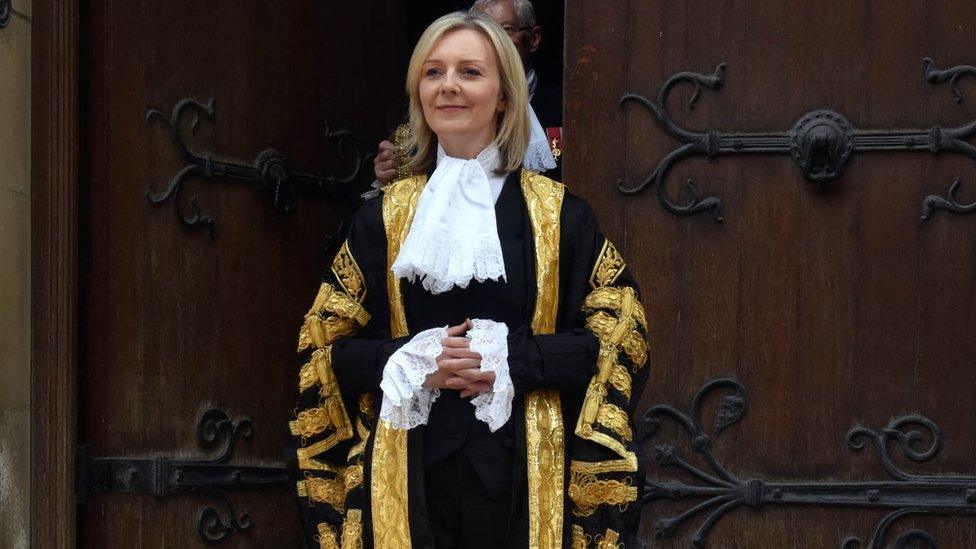
The Lord Chancellor has backed the independence of the UK's judiciary but stopped short of condemning attacks on senior judges over the Brexit ruling.
The Bar Council had demanded Liz Truss respond to criticism from some MPs and newspapers over the decision, external that MPs should vote on triggering Article 50.
The Daily Mail branded judges "Enemies of the people"; the Daily Express said it was "the day democracy died".
Ms Truss said the "impartiality" of the courts was "respected the world over".
On Thursday, the High Court ruled Parliament should vote on when the government can trigger Article 50, beginning the formal process of the UK leaving the EU.
Three judges found that the government could not start the formal process by using the royal prerogative alone, and would need the backing of both the Commons and the Lords.
The government is seeking to overturn the decision at the Supreme Court - the UK's highest court of appeal - next month.
Following fierce criticism of the ruling, the Bar Council of England and Wales - the professional body representing barristers called for Ms Truss to defend the judges "as a matter of urgency".
But its chairwoman Chantal-Aimee Doerries QC said she would have expected the Lord Chancellor - who is responsible for courts, prisons, probation and constitutional affairs - to make a clearer statement on the "unprecedented" attack which "undermines the rule of law in this country".
She said the court was entitled to rule on the case and she was "surprised by the backlash" because the judges were "doing their job".
The Criminal Bar Association later passed a resolution backing the Bar Council's demands.
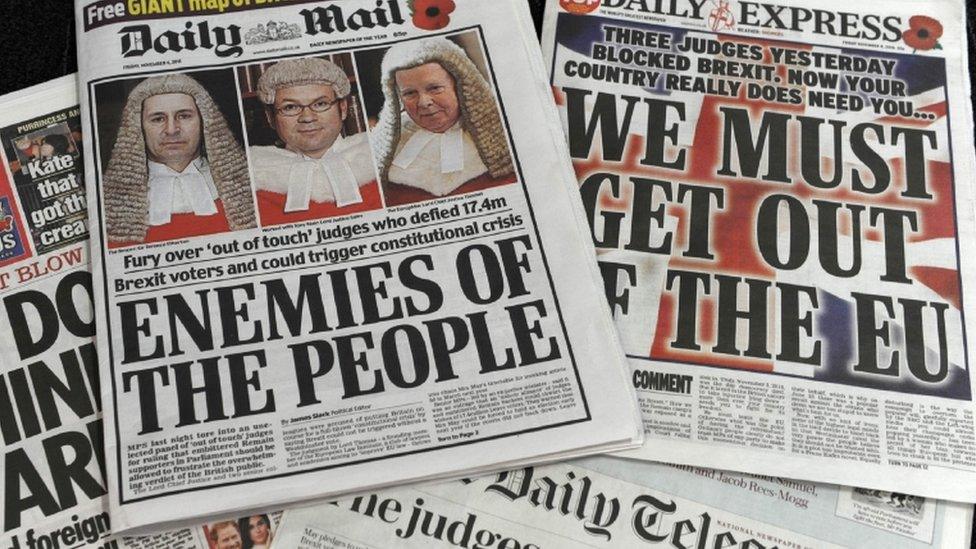
Some newspapers reacted with fury to the High Court ruling
In her statement, Ms Truss, who is also justice secretary, said: "The independence of the judiciary is the foundation upon which our rule of law is built and our judiciary is rightly respected the world over for its independence and impartiality.
"In relation to the case heard in the High Court, the government has made it clear it will appeal to the Supreme Court. Legal process must be followed."

Analysis
By Ben Wright, BBC News political correspondent
It could not be called a comprehensive response.
Having declined all requests for an interview, the Lord Chancellor Liz Truss put out a three-line statement saying the judiciary was independent and impartial.
Considering the vitriol of some press reaction to the High Court judges decision - "enemies of the people" according to the Daily Mail - and the demands for a defence of the judiciary from Labour and prominent Tory MPs, the government's response was the bare minimum.
We know ministers are angry about the ruling and are appealing to the Supreme Court.
But given a chance to say newspapers and politicians should be very wary about attacking the judiciary the Lord Chancellor demurred.
Nor did she say the courts did have the jurisdiction to rule on this dispute.
However, it be a very brave (or foolish?) minister to criticise the press for writing what they like about Brexit. And many voters will share the anger of some newspapers about the decision of the court.

'Silence embarrassing'
Shadow justice secretary Richard Burgon, who had earlier said Ms Truss's silence was "embarrassing", called her statement "too little, much too late" and said she had failed to "adequately stand up to attacks on [the] judiciary".
He said "pressure from the legal profession, professional bodies, politicians and the public has paid off" and Ms Truss had "finally made at least some progress on this issue".
But he added: "All Liz Truss has done is recite the well-known principle of the independence of the judiciary...
"The last few days mean that much of the legal community now has no confidence in the Lord Chancellor to fulfil her statutory duty to protect the independence of the British judiciary."
Writing on Twitter, Lib Dem leader Tim Farron, external described the response from Ms Truss as a "weak statement from a weak cabinet minister".
Gina Miller is considering telling the police about the vitriol she's received.
Earlier, Tory MP and former Attorney-General, Dominic Grieve, has compared coverage in one UK newspaper to the Nazi party's newspaper.
He told BBC Radio 5 live: "Newspapers in a free society can do what they like.
"But if you did decide to behave immoderately and whip up frenzied hatred you can do that in a free society if you set about it, and newspapers like the Daily Mail are no different from the Voelkischer Beobachter in Nazi Germany if they run headlines of that type."
'Decisive intervention'
Daily Mail columnist Stephen Glover defended his newspaper's stance, saying he did not believe the judges would "feel frightened or worried" by the criticism.
He said they had made a "decisive intervention" in the political process, and "must expect some comeback".
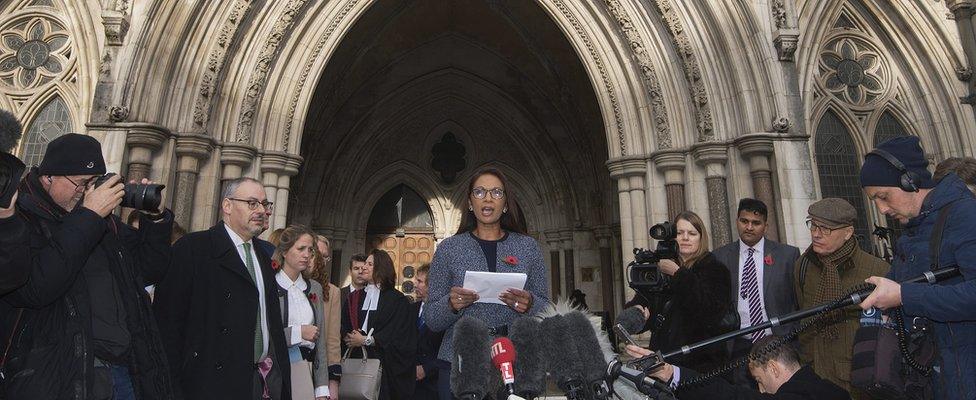
Gina Miller led the legal campaign that resulted in the High Court ruling
UKIP MP Douglas Carswell is among those who have attacked the judges, calling them "politicians without accountability".
Meanwhile, Gina Miller, the investment manager and philanthropist who led the legal campaign, has said she plans to report online trolls to police after receiving rape and death threats.
"I am really cross at the politicians and the media who are whipping this up because they are the ones inciting racism and violence and acrimony," she said.
The Archbishop of Canterbury, Justin Welby, also commented on the row, writing in a tweet:, external "Horrified by trolling of judges & those going to court; British values call for honest but good disagreeing, need reconciliation not abuse".
He added independent judges were "fundamental to our values" and it was "wrong to attack them for declaring the law",
Prime Minister Theresa May has said she is "confident" the government will win its Supreme Court appeal and is committed to triggering Article 50 by March 2017.
- Published5 November 2016
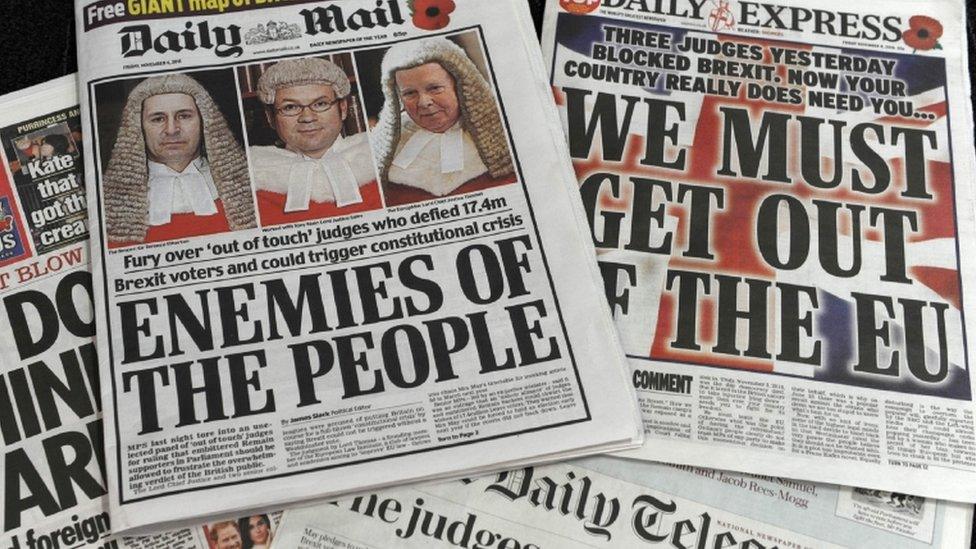
- Published5 November 2016
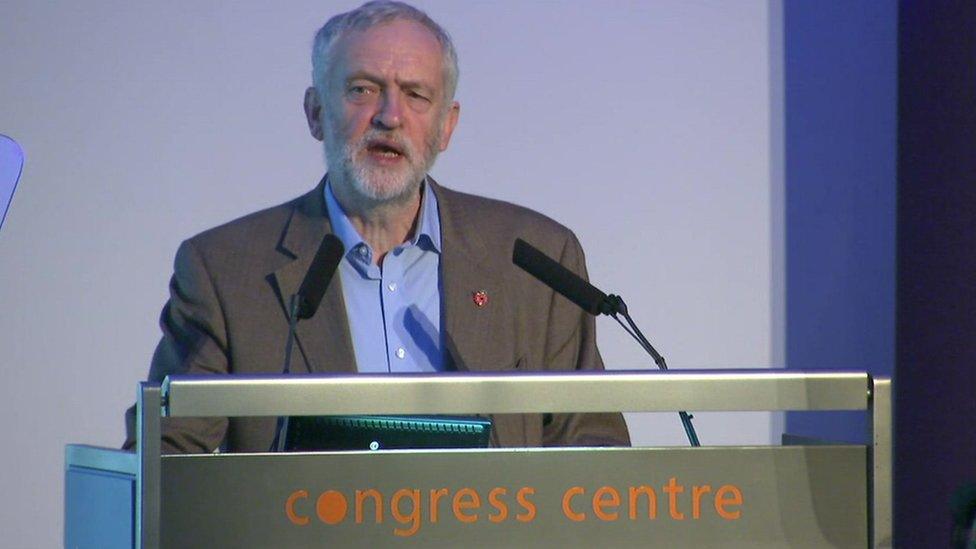
- Published4 November 2016
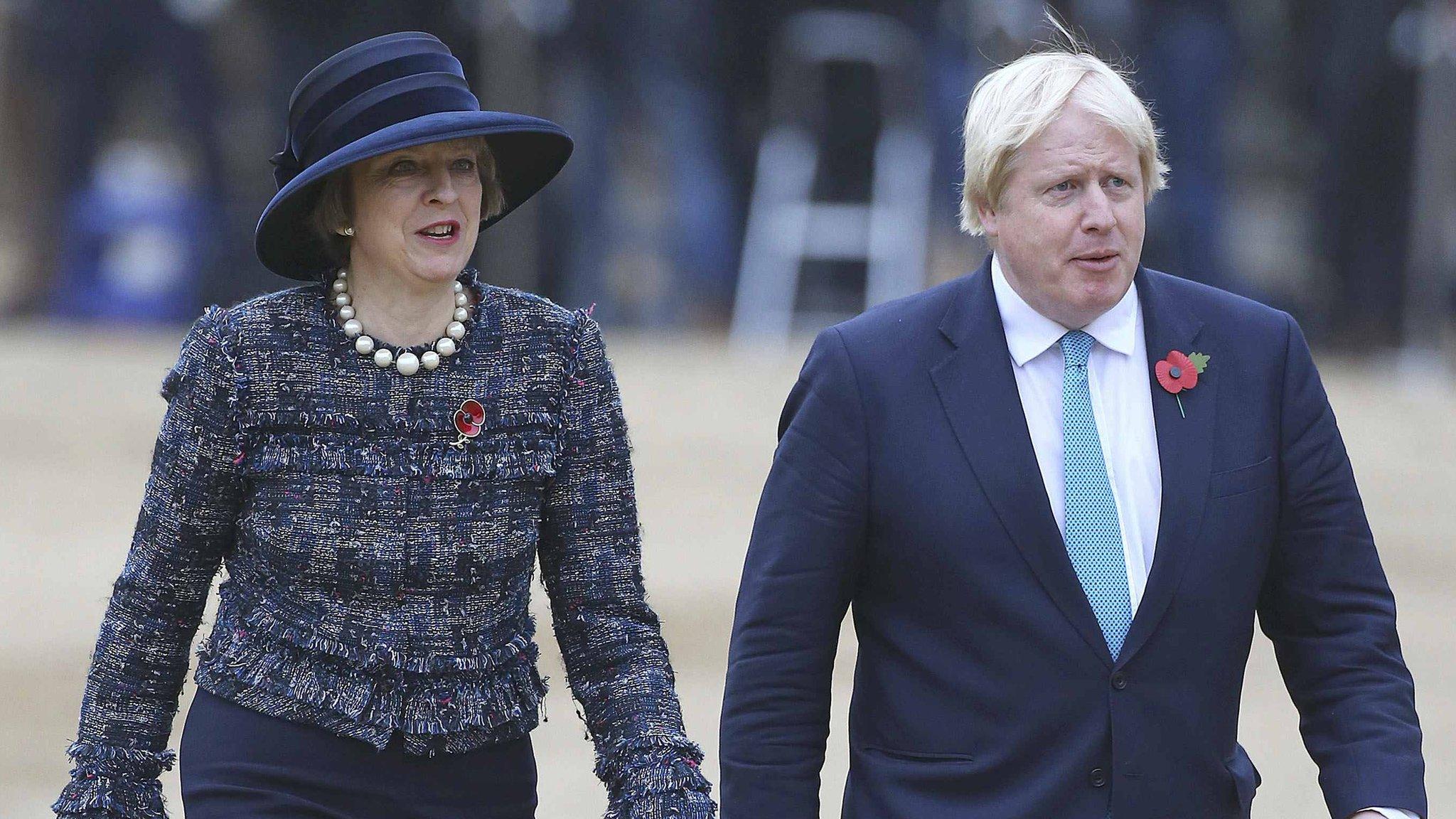
- Published4 November 2016
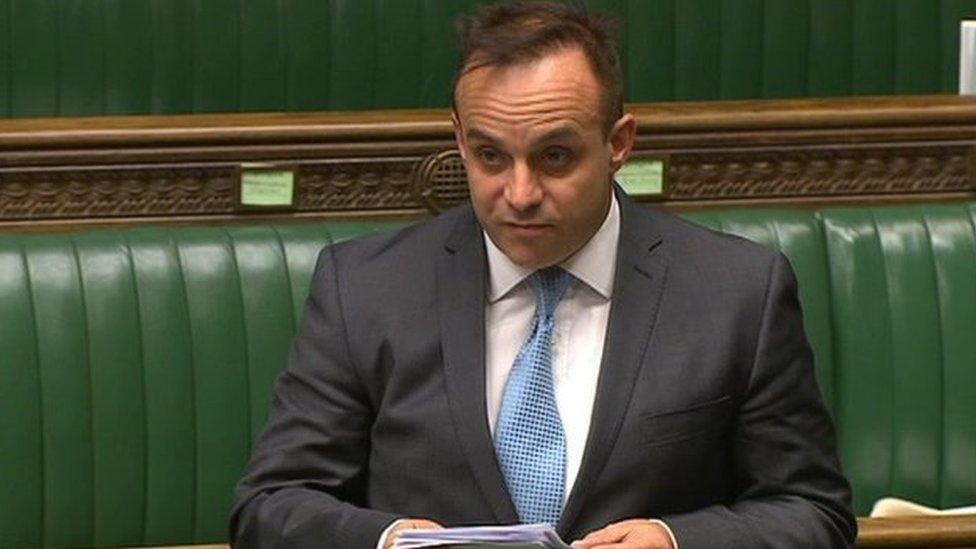
- Published3 November 2016
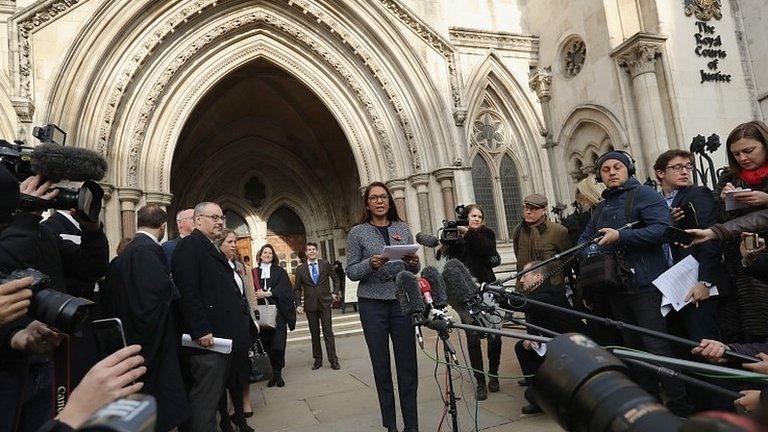
- Published4 November 2016
